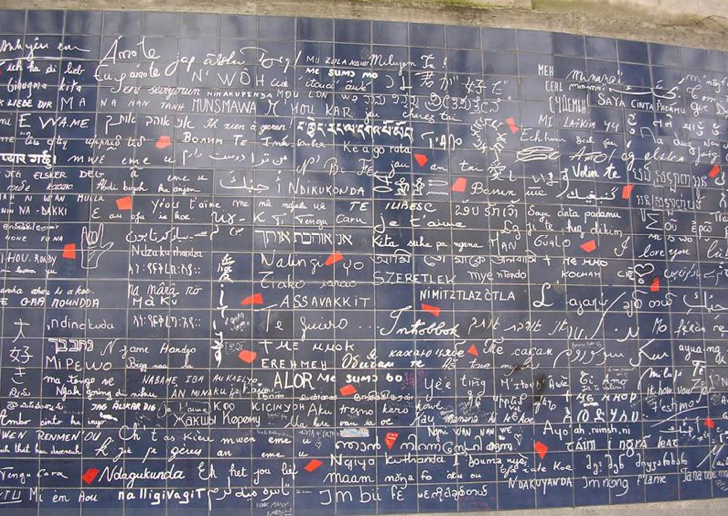LANGUAGE MANIA

How many languages do YOU speak?
Let's be honest: the more languages you know the better you are! We all grew up trying to learn a second language, either because we were obliged to do it or simply because we took an interest in learning something different. While learning a new language could be quite a challenge for some of us, there are different ways in which we could make our learning experience easier and why not funnier!?
It is really easy to get lost in all the various learning techniques that are available. Reading pages and pages on how to learn a new language could be long and boring. The best is to jump right into it and learn as you go. If you do end up on the internet looking for tips, this is what I put together in an attempt to make the world will seem a bit smaller than what it is.
Practice practice practice. As hard as it might be the best and probably the fastest way to learn a new language is to actually speak the language. Even if it might seem impossible to pronounce certain words that's not an excuse to remain silent. If you're really terrified then start by talking to yourself. Make your mind use the new language or simply play roles by putting yourself into various positions. Even better, find a native speaker and literally use him for his language skills. Remember: the more you practice the more natural the words will come!
Enrich your vocabulary. Using the right tools will help improve your vocabulary. Each day try to learn a new word or a expression. Pick up the daily paper, read books or magazines. Children books are a great way to start because they give you more confidence as you are more familiar with the words used. If you're fan of textbooks use colourful ones just to keep you more entertained. If you get bored of reading then why not tune your iPod to the latest songs in the language you're trying to learn? Songs are a great way to integrate new words into your vocabulary while singing along. Try to be creative in learning the new vocab don't just memorize it!
Keep it short. There's really no need to complicate your life by using long sentences. By keeping it simple you minimize the grammatical mistakes. Use the words that come more natural while trying to integrate the new vocabulary.
Listen. To get used to sounds and intonations try to watch foreign t.v, movies and listen to the radio. Where possible, make use of subtitles as they are a good source for everyday expressions. Don't be discouraged if you don't understand everything. The important part it to get used to hearing the new language as sometimes the intonation is different from the written text.
Know when to take a break. It is good to be determined and perseverent in learning a new language but nonetheless know when it is time to stop! Don't exaggerate and don't push yourself too much. You don't want to be tired of the new language. Have patience and everything will come with time.
Confidence. It does take some guts risking to make a fool of yourself in some innocent attempt to use the latest expression you have learned. Don't be discourged if people are not that impressed with your effort to speak the language. Don't be scared to put yourself into a position in which you are obliged to speak. And if worse comes to worse and you get stuck in a situation or if you cannot find your word, don't panic! Instead try using gestures, signs or facial expressions to explain yourself. Whatever you do be persistent and don't be afraid to follow your intuition.
Have fun. Learning a language is suppose to be fun! Keep it that way! Try using your imagination to come up with new ways of learning, make rhymes with the words that are impossible to rememeber, exagerate the accent...whatever it takes to keep a smile on your face.
It is really easy to get lost in all the various learning techniques that are available. Reading pages and pages on how to learn a new language could be long and boring. The best is to jump right into it and learn as you go. If you do end up on the internet looking for tips, this is what I put together in an attempt to make the world will seem a bit smaller than what it is.
Practice practice practice. As hard as it might be the best and probably the fastest way to learn a new language is to actually speak the language. Even if it might seem impossible to pronounce certain words that's not an excuse to remain silent. If you're really terrified then start by talking to yourself. Make your mind use the new language or simply play roles by putting yourself into various positions. Even better, find a native speaker and literally use him for his language skills. Remember: the more you practice the more natural the words will come!
Enrich your vocabulary. Using the right tools will help improve your vocabulary. Each day try to learn a new word or a expression. Pick up the daily paper, read books or magazines. Children books are a great way to start because they give you more confidence as you are more familiar with the words used. If you're fan of textbooks use colourful ones just to keep you more entertained. If you get bored of reading then why not tune your iPod to the latest songs in the language you're trying to learn? Songs are a great way to integrate new words into your vocabulary while singing along. Try to be creative in learning the new vocab don't just memorize it!
Keep it short. There's really no need to complicate your life by using long sentences. By keeping it simple you minimize the grammatical mistakes. Use the words that come more natural while trying to integrate the new vocabulary.
Listen. To get used to sounds and intonations try to watch foreign t.v, movies and listen to the radio. Where possible, make use of subtitles as they are a good source for everyday expressions. Don't be discouraged if you don't understand everything. The important part it to get used to hearing the new language as sometimes the intonation is different from the written text.
Know when to take a break. It is good to be determined and perseverent in learning a new language but nonetheless know when it is time to stop! Don't exaggerate and don't push yourself too much. You don't want to be tired of the new language. Have patience and everything will come with time.
Confidence. It does take some guts risking to make a fool of yourself in some innocent attempt to use the latest expression you have learned. Don't be discourged if people are not that impressed with your effort to speak the language. Don't be scared to put yourself into a position in which you are obliged to speak. And if worse comes to worse and you get stuck in a situation or if you cannot find your word, don't panic! Instead try using gestures, signs or facial expressions to explain yourself. Whatever you do be persistent and don't be afraid to follow your intuition.
Have fun. Learning a language is suppose to be fun! Keep it that way! Try using your imagination to come up with new ways of learning, make rhymes with the words that are impossible to rememeber, exagerate the accent...whatever it takes to keep a smile on your face.




